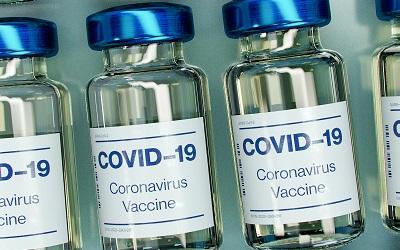The Demand of Justice in the Diffusion of the Vaccine for COVID-19

Theo Papaioannou is Professor of Politics, Innovation and Development at The Open University.
In May 2020 I wrote an opinion piece for the OU's Social Scientific Research in the time of COVID-19 series in which I supported the argument that securing a globally fair diffusion of a possible vaccine would be much more complex than innovating the vaccine itself. The debate that erupted immediately after the Pfizer and BioNTech announcement of a vaccine that is more than 90% effective proves that this argument was correct. In the absence of any global agreement on non-ideal principles of just diffusion of innovation for COVID-19, what seems to have prevailed is a ‘vaccine nationalism’ and the worst possible scenario of power-dynamics driven diffusion that prioritises the interests of high-income countries and peoples.
Western procurement
The UK, the US and the EU were quick to tell their publics that they have already bought millions of doses of the new vaccine, excluding the poor countries which could be left behind in their fight against COVID-19. For example, the UK announced procurement of 40 million doses and the US announced 100 million doses with another 500 million available if needed. No announcement has been made by any low-income country. This exclusion from innovation raises issues of legitimacy and invites global public action and campaigning for rectifying the injustice. As I have argued in my recent book Inclusive Innovation for Development, global public action and campaigning emerge when unequal access to new technologies and innovative products causes people to fail in satisfying their basic needs (with disturbing consequences for their lives). When people understand that the reason why they cannot acquire a new vaccine for COVID-19 is the advance agreements of high-income countries with pharmaceutical companies to secure supplies or the IPR regimes and global hierarchies of innovation which have been developed without their democratic participation, they begin to feel politically responsible for the innovation injustice and therefore act intuitively, generating new normative principles and bottom-up solutions to rectify it.
The WHO global patent pool
Indeed, global public actors and campaigners, including Global Justice Now and Christian Aid have already warned about the unjust outcome of current diffusion plans of the Pfizer and BioNTech vaccine. They argued that the vaccine should be shared with the world poorest countries to avoid a ‘global postcode lottery’. One way to do that is for Pfizer and BioNTech to put their vaccine into the WHO global patent pool. Back in May 2020, more than 35 countries and international bodies signed up to support the WHO COVID-19 Technology Access Pool (C-TAP) as a single repository for knowledge and IP. However, Pfizer and BioNTech did not participate in this voluntary patent pool initiative and therefore they might decide not to allow other companies to replicate the vaccine in low cost for poor countries. In this way, they might create an artificial scarcity with devastating consequences for global health and economy. Although both companies expressed interest to supply to the COVAX Facility, a wide coalition of governments, global health organisations, manufacturers, scientists, private sector, civil society and philanthropy established by Gavi, the Vaccine Alliance, the Coalition for Epidemic Preparedness Innovations (CEPI) and World Health Organization (WHO) to provide equitable access to COVID-19 vaccines, it is unclear whether they will do so. After all, Pfizer and BioNTech are only able to produce limited number of doses every year.
Global Public Action and Campaigning
It is important, in light of the reasons outlined above, that global public actors and campaigners advocate a non-ideal plan for just diffusion of the vaccine, pushing for compulsory licensing or suspension of IPR regimes on the grounds of empirical evidence of the current and long-term impact of COVID-19 on poor and marginalised countries in Africa, Latin America and South Asia. These countries have the least capacity to absorb the health and economic shocks from the pandemic. Therefore, they ought to be prioritised against high-income countries. The idea of justice in innovation that I defend requires global public action and campaigning to ensure not only the equal share of the new vaccine with each member of global society but even more importantly the equal relations between each member of global society. Such relational equality can only be achieved through recognition and respect of vulnerability of poor countries.
Request your prospectus
![]()
Explore our qualifications and courses by requesting one of our prospectuses today.